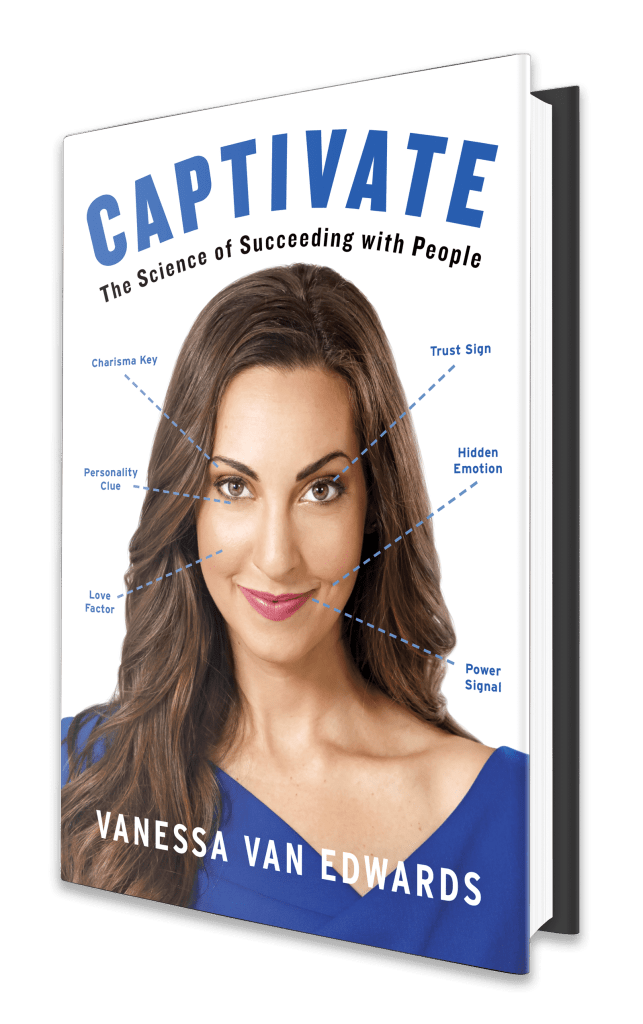Have you ever been in a job interview or an icebreaker activity and stumbled upon the infamous question, “What’s your greatest weakness?”
It’s a tricky question to answer because you want to be honest, but you also don’t want to talk negatively about yourself.
Watch our video below to learn how to expertly answer the question: “What’s Your Greatest Weakness?”
Should I Answer This Question Honestly?
Always answer this question honestly. When faced with the question about our greatest weakness, it’s tempting to give a fake positive answer, such as being “too detail-oriented” or “too amazing.” However, this approach comes across as insincere and fails to provide genuine insight into our true selves.
Instead, the key is to offer a real answer, accompanied by a story that showcases vulnerability, humor, and a lesson learned. By sharing our experiences honestly, we allow others to truly get to know us and understand our growth areas.
In fact, I have a 2-part formula for answering this question honestly and authentically.
Part 1: Identify a Genuine Weakness
It’s important to be honest about your weakness, but also choose one that doesn’t directly relate to the job’s core requirements. Here’s a script for this part:
Script Example: “Well, one area where I’ve noticed room for improvement is time management. There have been instances where I’ve taken on multiple projects simultaneously, and it led to some challenges in meeting deadlines.”
Part 2: Discuss Growth and Learning
The key to success with this question is showing that you’re proactive about self-improvement. Share a story of how you’ve actively addressed this weakness, learned something, or grew from it.
Script Example: “To overcome this, I started using time management tools like calendars and task lists more effectively. I also enrolled in a time management course to learn valuable techniques. Since then, I’ve seen significant progress. I prioritize tasks better, allocate time more efficiently, and consistently meet deadlines. This experience taught me the importance of continuous self-improvement, and now, I’m better equipped to manage my time and handle multiple projects effectively.”
Example Weaknesses and Responses
- Weakness: Perfectionism
- Response: “I used to be a perfectionist, which sometimes caused delays in project completion. I learned to balance striving for excellence with meeting deadlines by setting clear milestones and seeking feedback regularly.”
- Weakness: Public Speaking Nervousness
- Response: “Public speaking made me nervous in the past. To overcome this, I joined a public speaking club where I’ve honed my skills. Now, I’m comfortable and even enjoy presenting in front of others.”
- Weakness: Delegating Tasks
- Response: “I used to struggle with delegating tasks because I felt the need to control every aspect of a project. I’ve since learned the value of delegation, empowering team members, and focusing on higher-level tasks.”
- Weakness: Being Overly Critical of My Work
- Response: “I can be overly critical of my work, which at times affected my self-confidence. I began seeking mentorship and feedback from colleagues, which helped me see my work more objectively and improve.”
Why Vulnerability is Key When Answering This Question
One example of answering this question authentically is illustrated through a personal story. For example, a personal anecdote is when CEO Vanessa Van Edwards joined a basketball team despite never having played before. Her unrealistic expectations clashed with the reality of her skills, leading to a quick dismissal from the team.
The story highlights Vanessa’s tendency to create idealistic scenarios without considering her readiness or abilities. By acknowledging this weakness, she demonstrates self-awareness and an ongoing effort to manage her ambitions and expectations.
Being vulnerable is one of the many social skills that leads to charisma. Want to be charismatic? Check out:

Succeed with People
Master the laws of human behavior and get along with anyone. Increase your influence, impact, and success.
Register below to get your FREE chapter of Captivate.
Embracing Oxytocin: The Antidote to Social Anxiety
Shifting gears, let’s explore the impact of oxytocin on social interactions and its role in alleviating social anxiety. Oxytocin, known as the “magical little chemical,” has been found to enhance trust, social cognition, and decoding abilities.
Those with higher levels of oxytocin tend to excel in socializing and effortlessly sharing ideas. This information is particularly valuable for those who struggle with influence, fear, and anxiety in social situations.
The good news is that we can naturally boost our oxytocin levels through simple actions like touch and eye contact. Physical touch, such as handshakes, high-fives, hugs, or cheek kisses, triggers the release of oxytocin and fosters connection.
Moreover, eye contact, especially in times of social distancing, plays a vital role in producing oxytocin. When we lock eyes with someone, a surge of oxytocin begins, facilitating more meaningful interactions.
The next time you’re headed into an interview, make sure to implement proper physical touch and/or eye contact if you’re comfortable.
Be Honest, Then Move On
Be honest and direct about your weakness, and then swiftly move on. No need to dwell on it or go into all the gory details. Instead, focus on how you’ve learned from it or how you’ve grown as a result. You can even use a positive example to showcase your confidence and reinforce your other strengths and skills. Show ’em that you’re a well-rounded human being, flaws and all.
So the next time you’re faced with the dreaded “What’s your greatest weakness?” question, remember this:
- Answering the “greatest weakness” question in a job interview requires balancing honesty and avoiding negative self-talk.
- Providing a real answer accompanied by a vulnerability-filled story allows others to understand our growth areas.
- Simple actions like physical touch (handshakes, hugs) and eye contact can naturally boost oxytocin levels, fostering connection and meaningful interactions during interviews or social situations.
Want more on how to have the best interview? We got you covered: 45 Great Questions to Ask An Interviewer To Land Your Job
